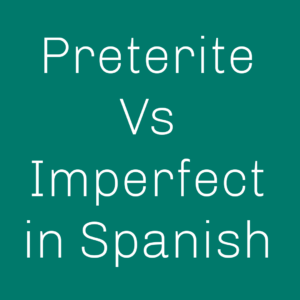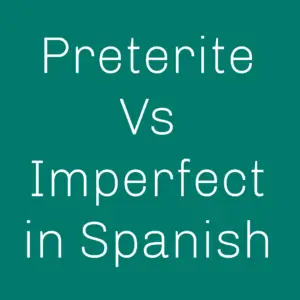Let’s find out what is Preterite vs Imperfect in Spanish. Study basic grammar rules with online lessons. Read about how and when to use some important words and phrases.

Spanish has two past tenses: Preterite and Imperfect. Generally speaking, the Preterite is used for actions in the past that are seen as completed. Use of the Preterite tense implies that the past action had a definite beginning and definite end.

